(De)Facing Public Art through a Digital World
Martin Zebracki is a Lecturer/Assistant Professor at the School of Geography, University of Leeds, United Kingdom. He has published widely about the intersecting geographies of public art practice, social engagement, (sexual) citizenship, and digital culture. His recent volumes include The Everyday Practice of Public Art: Art, Space, and Social Inclusion (with Cameron Cartiere; Routledge, 2016) and Public Art Encounters: Art, Space and Identity (with Joni M. Palmer; Routledge, 2017).
This invited address will critically attend to some high-profile, contentious cases to tackle the intricate relationships between the digital human, public art, and the city. He will ask the following central, inter-related questions:
How do people engage with real-life public artworks and what are their re-uses and misuses on the Internet? How do everyday people, media agents and arts professionals co-create public artworks through digital technologies and online spaces and how are conventional producer-user roles reconfigured in so doing? How does user-created content by ‘produsers’ renegotiate the uses and meanings of public artwork beyond the original intents of the artist? What kind of new digital places, urbanities and conditions of ‘objecthood’ and involvement are created for public art beyond traditional urban public spaces, hegemonic historical contexts, and established policy agendas and blueprints? What are the impacts of the digital tweaking of public art for intended publics but also for audiences that are often unintended?
Martin will discuss these questions to advance both theoretical and empirical understandings of the digital politics and geographies of public-art practice along with intersectional identity concerns with class, gender, sexuality, ethnicity, race, age, religion, (dis)ability, and citizenship status. Accordingly, he will revisit cultural place-makings and social claim-makings within the informal peer-to-peer spaces of digital society today. He will close the talk with an ethical note on the real-world consequences of actions and reactions that are indicative of what Olga Goriunova has termed a ‘new media idiocy’. He will thereby ask how the digital mediation and the geometry of digitally networked space can be the giver, or taker, of the social and spatial meaningfulness and inclusiveness of public art practices: Are we facing a new world of (false) digital connectedness and immediacies? More
